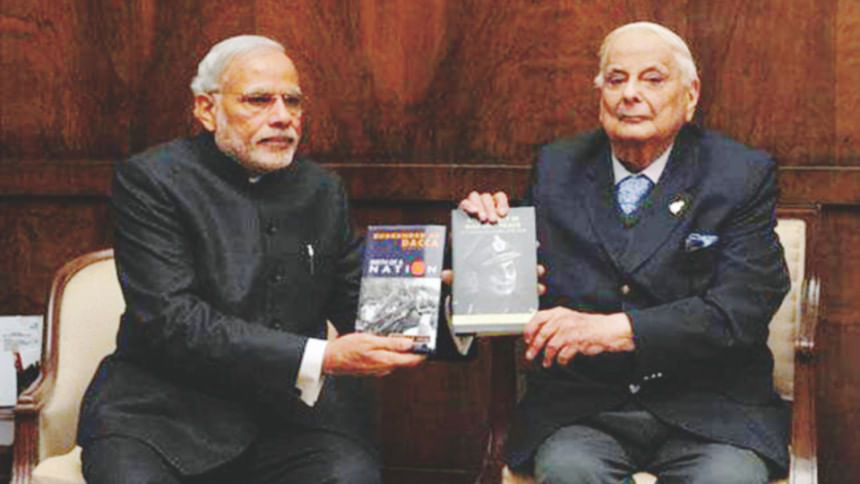REMEMBERING JAKE

Here's all you need to know about this hero:
WHO WAS JFR JACOB?
Born in Kolkata (then Calcutta) in 1923, Jack Farj Rafael Jacob grew up in a conservative Baghdadi Jews household under the British rule. His family had originally come from Iraq and settled in Bengal in the mid-18th century.
Jacob did his schooling from Victoria School in Kurseong, West Bengal. Living in the boarding school, he visited home only during school holidays as a boy.
As a teenager, Jacob was strongly influenced by wartime poetry. In his interview to The Times of Israel, he said that his family had taken in a family of Jewish refugees from Hitler's Europe.
Unmarried and childless, Jacob wrote a moving open letter to the youth of Delhi at 93, addressing them as his "sons and daughters".

HIS ROLE IN WORLD WAR II
Jacob had joined the British army at the age of 18 "to fight the Nazis". Although initially his father disapproved of his enlisting, he later on accepted the decision.
After graduating from Officer's Training School Mhow in 1942, Jacob fought in World War II in northern Iraq, North Africa, Burma (now Myanmar), Sumatra, etc.
When the war was over, he went on to graduate from artillery schools in England and the United States, where he got special training in advanced artillery and missiles.

HIS ROLE IN THE INDIAN ARMY
Jacob joined the Indian Army after the Independence, and went on to serve for 37 years in different ranks.
"The only place I encountered anti-Semitism was from the British in their army. Among Indians it does not exist," he said in his interview to The Times of Israel.
After being promoted to Brigadier in 1963, he fought in the 1965 Indo-Pakistani War. Later on, Jacob was promoted to Major General in 1967.
HOW JACOB HELPED WIN THE 1971 INDO-PAKISTAN WAR?
Then Major General Jacob served as the Chief of Staff of the Indian Army's Eastern Command during the 1971 Indo-Pakistan war.
When the war was at its peak, then-Chief of the Army Staff SHFJ "Sam" Manekshaw wanted to invade into East Pakistan (now Bangladesh) and capture the towns of Chittagong and Khulna. Some Indian Army officers, however, were unsure about this move.
Jacob then came up with the "war of movement" plan, which was to capture all of East Pakistan including Dhaka by avoiding the towns in between and using secondary routes to reach the capital city.
This plan, carried in just 15 days, made the Indian Army's incursion of Dhaka successful.
On December 16, 1971, Jacob was sent to get a surrender from Pakistani Army commander, Lt. General A. A. K. Niazi.
In one of his interviews, he narrated how he reached Dhaka unarmed and accompanied by only one staff officer, carrying just the draft surrender document.
Handing the document to General Niazi, which asked for Pakistan Army's unconditional surrender, Jacob gave him 30 minutes to decide. Niazi accepted the conditions.
After the signing of the document that gave birth to a new nation, Jacob reminisces in the interview having "hitched a ride in a truck" on his way back.
Pakistan's National Defence College in a study had written that the credit of the victory "really goes to General Jacob's meticulous preparations in the Indian eastern command and to the implementation by his Corps commanders".

AFTER HIS RETIREMENT FROM THE ARMY
Jacob retired from the military in 1978 and went on to be appointed as the governor of Goa, and then as the governor of Punjab.
He has also penned books on his experience in the Army, namely Surrender at Dacca: Birth of a Nation and An Odyssey in War and Peace: An Autobiography Lt Gen. J.F.R. Jacob.
During the latter part of his life, Jacob was settled in New Delhi.
Source: India Today

 For all latest news, follow The Daily Star's Google News channel.
For all latest news, follow The Daily Star's Google News channel. 



Comments